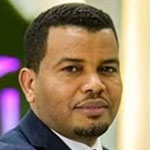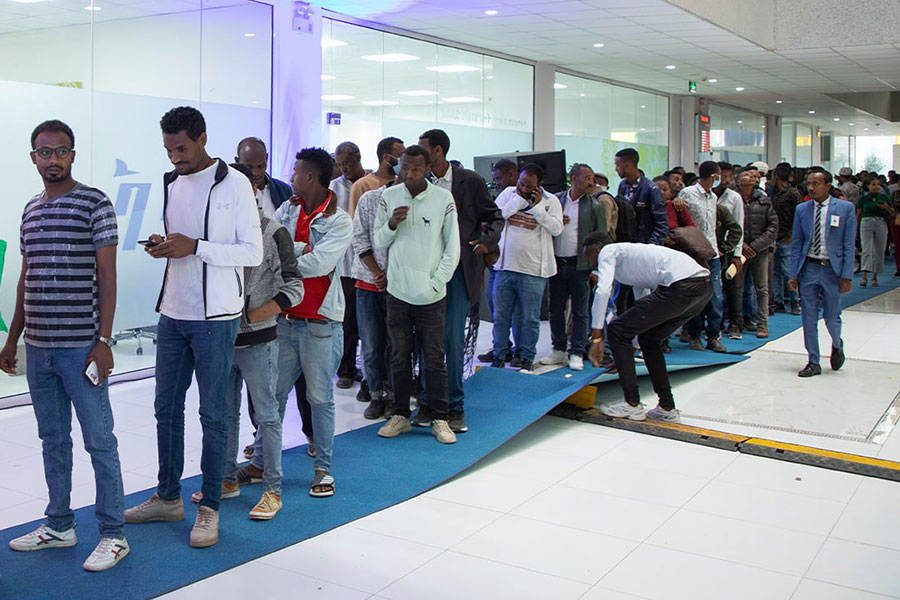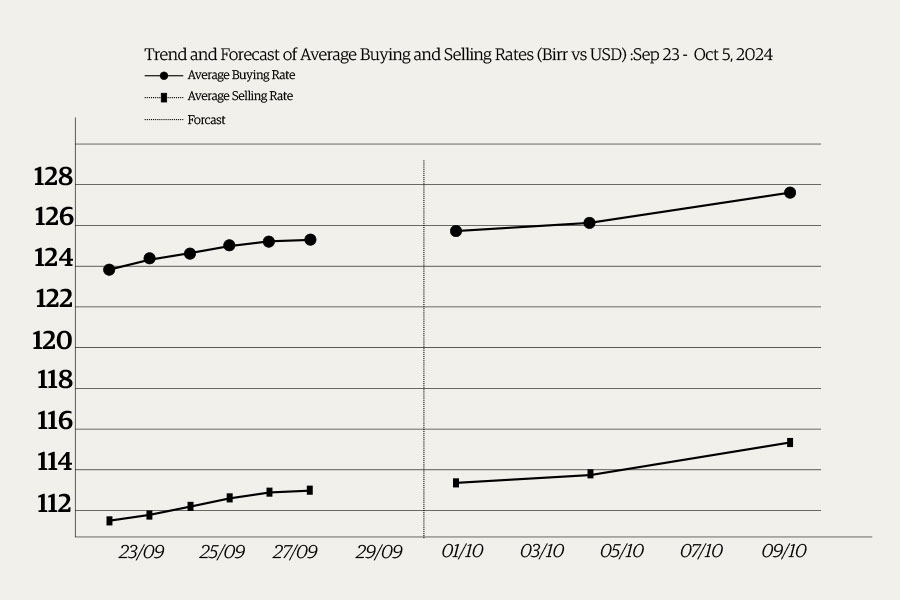
Nov 29 , 2020
By Dawit Wondimagegn
The relatively milder trajectory of the COVID-19 pandemic in Africa may create a pseudo sense of safety and protection among both the populace and African governments. Combined with the severity of the damage that the virus is causing the rich world, there is a possibility that Africa may be left behind in the scramble for COVID-19 vaccines, writes Dawit Wondimagegn (MD) (dawitwondimagegn@gmail.com), associate professor of psychiatry at Addis Abeba University’s School of Medicine and chief executive director of Tikur Anbessa Hospital.
As the COVID-19 pandemic continues to rage in many parts of the world, the African region is somehow spared the wrath of the virus. While it remains a source of great relief that we have been spared the severe suffering and death that is ravaging the rest of the world, we can only be cautiously optimistic that the tables will not turn at a later stage.
This cautious optimism is grounded in the fact that while a combination of efforts may have contributed for better control and that there are speculations and theories as to why the region seems to fare better than the rest of the world, we still do not know why the pandemic took a lighter course in Africa. A great deal remains to be understood. There is no scientific evidence that suggests that we are in a "post-pandemic" stage.
In the meanwhile, there have been positive reports and news regarding effective vaccines, which the rich world is queuing to buy to save and protect their citizens from the virus and open their economies to ameliorate loss of income.
It is important to remember that the world has been in these types of situations in the past, and it overcame them each time at a cost. Our most recent memory of a pandemic of Biblical proportion is the HIV-AIDS pandemic, which killed millions before the world got together to institute a programme of prevention, care and treatment that tamed and eventually put it under control.
Before this though, the poor of the world, specifically those in Sub-Saharan Africa, paid in millions with their lives to such an extent that most people at some point lost or knew someone affected by the HIV pandemic. The region still caters to millions of people with the disease as well as orphans who were left without parents to raise them. The economic cost associated with the loss of the labour force also left the entire continent to be in a state of catch up.
With the way the current pandemic is playing out at the global stage, one cannot help but wonder what will happen to the African region if the rest of the world manages to put it under control with the provision of vaccines and potentially even treatment, leaving the continent behind.
It is fair to say that, in the past, the African region has suffered multiple traumatic experiences in its relationship with the rest of the world. The HIV pandemic again serves a good example of how the region was left or remained behind the rest of the world to have a programme of prevention, care and treatment for the virus. The delay in accessing life-saving antiretroviral medications was the cause for the many deaths that could have been avoided. In hindsight, it can be argued that the people of Africa were left and abandoned by both their governments and the rest of the world.
The governments of the day committed a historic mistake by not acting fast enough to intervene on behalf of their citizens. While some were caught up with their own illusion that HIV was not an African problem and deluded themselves by promoting unfounded local remedies as treatment, others were paralyzed by rigid policies and procedures that stifled attempts of support from the rest of the world.
Non-African governments were no more helpful. They left the region to its own devices until a time when the raging pandemic in Africa was on the verge of becoming a threat to the entire globe. To this end, the US remains the single most important actor in saving millions of lives through the President’s Emergency Plan for AIDS Relief (PEPfAR) programme that saved and continues to save millions of lives. Africa is indebted to the US for its generosity for bringing the region back from the edge of collapse.
At the height of the HIV pandemic, despite differences, the world was a more-united entity than it is now. The global institutions we know had a much better standing and leverage on countries and governments. The people of the world were much more tolerant of difference and diversity than they are now.
With such a different global orientation now, with the scramble for vaccines and treatment for COVID-19, what is the fate of the African region? Will it wait to see how the rest of the world would do to support it? Will it step up and join the scramble to get a portion of the pie? Does it have the resources to compete? Is there a global platform where equity would be a founding principle?
There is a potential that the African region could be left behind. The relatively milder trajectory the pandemic is taking in the region may create a pseudo sense of safety and protection by both the populace and African governments that may delay engagement and cost valuable time.
Just as worrying is the severity and the damage the pandemic is causing to the richest countries of the world. Even if these countries have the willingness to help out, they may be overstretched for both resources and time to pay attention to what is going on in other parts of the world until a time when the pandemic in other places becomes a local threat.
The ideological divide that is prevailing in the world now has weakened global institutions. It is rendering them into becoming weaker mediators for global action, which is crucial in ensuring a coordinated programme of action on matters such as vaccine access and distribution.
All of this sounds familiar, in a strange way, it feels like we have been here before. Déjà vu! The fact that we find ourselves in the same predicaments of the past triggers us to re-experience our historical trauma.
A better and equitable world is an ideal which all of us, as citizens of the world, should aspire to reach. But it is just that: an ideal. While we continue to aspire toward it, we have to continue to live in the real one, which remains as divided as it has always been between the haves and the have-nots.
Ethiopia, and Africa, belongs to the have-not category, almost always dependent on the generosity, charity and at times mercy of the haves of the world. There is very little that suggests that it will be different this time but with the added challenge that even the haves of the world are facing their own unprecedented odds.
We have to continue hoping that the whole world gets better and gets better fast and that the pandemic continues to be kind to the African region and all the regions of the world where it has been mild. Should the trajectory take a turn for the worst, there is a need that we have to be ready and cannot be complacent in doing what is possible with the means that we have at hand.
Hearing German Chancellor Angela Merkel’s concern about not leaving developing countries behind, after the recent G20 meeting which tangentially promised equitable access and distribution of vaccines to emerging countries, should put things in perspective for us. The world seems to be willing, but the means may not be there yet.
What governments and citizens of developing countries could and should do now is to focus on hammering on the good public health prevention methods that are tested and proven. It is cheap and is as good as a vaccine!
PUBLISHED ON
Nov 29,2020 [ VOL
21 , NO
1074]


Radar | Sep 04,2021

Verbatim | May 29,2021

Commentaries | Feb 09,2019

Covid-19 | Feb 20,2021

Films Review | Mar 23,2019

My Opinion | Feb 20,2021

Verbatim | Aug 28,2021

Agenda | Jul 17,2022

Money Market Watch | Sep 28,2024

Commentaries | Nov 23,2024

My Opinion | 131451 Views | Aug 14,2021

My Opinion | 127803 Views | Aug 21,2021

My Opinion | 125783 Views | Sep 10,2021

My Opinion | 123419 Views | Aug 07,2021

Dec 22 , 2024 . By TIZITA SHEWAFERAW
Charged with transforming colossal state-owned enterprises into modern and competitiv...

Aug 18 , 2024 . By AKSAH ITALO
Although predictable Yonas Zerihun's job in the ride-hailing service is not immune to...

Jul 28 , 2024 . By TIZITA SHEWAFERAW
Unhabitual, perhaps too many, Samuel Gebreyohannes, 38, used to occasionally enjoy a couple of beers at breakfast. However, he recently swit...

Jul 13 , 2024 . By AKSAH ITALO
Investors who rely on tractors, trucks, and field vehicles for commuting, transporting commodities, and f...

Jun 28 , 2025
Meseret Damtie, the assertive auditor general, has never been shy about naming names...

Jun 21 , 2025
A well-worn adage says, “Budget is not destiny, but it is direction.” Examining t...

Jun 14 , 2025
Yet again, the Horn of Africa is bracing for trouble. A region already frayed by wars...

Jun 7 , 2025
Few promises shine brighter in Addis Abeba than the pledge of a roof for every family...

Jun 29 , 2025
Addis Abeba's first rains have coincided with a sweeping rise in private school tuition, prompting the city's education...

Jun 29 , 2025 . By BEZAWIT HULUAGER
Central Bank Governor Mamo Mihretu claimed a bold reconfiguration of monetary policy...

Jun 29 , 2025 . By BEZAWIT HULUAGER
The federal government is betting on a sweeping overhaul of the driver licensing regi...

Jun 29 , 2025 . By NAHOM AYELE
Gadaa Bank has listed 1.2 million shares on the Ethiopian Securities Exchange (ESX),...